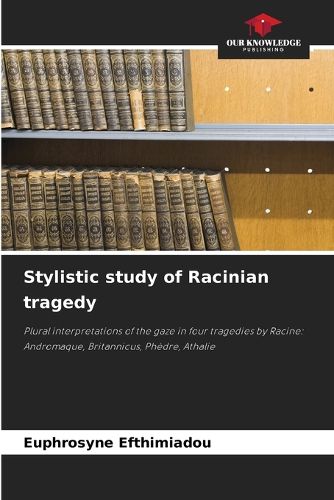Readings Newsletter
Become a Readings Member to make your shopping experience even easier.
Sign in or sign up for free!
You’re not far away from qualifying for FREE standard shipping within Australia
You’ve qualified for FREE standard shipping within Australia
The cart is loading…






In the second third of the 17th century, Racine devoted himself to the theatrical genre of tragedy, and more specifically, to the psychological study of his heroes. Racine's tragedies are of fundamental interest for their meticulous study of characters, reflecting their emotional and affective state as they act out their roles. In this respect, the stylistic approach based on multiple interpretations of the gaze is of major importance in highlighting the psychology and actions of the heroes that lead to tragedy. Racine draws on the lexical repertoire of pastoral and neo-Platonic vocabulary for the gaze, but gives it new meaning. On the one hand, the heroes' gaze remains dazzled and immobilized before the being that fascinates it, seeking communication in order to assert its presence. On the other, feelings arise from the hearts of the characters, who remain dominated by their desires. Finally, the spirit intervenes to question the profound nature of the upheaval the beings are undergoing.
$9.00 standard shipping within Australia
FREE standard shipping within Australia for orders over $100.00
Express & International shipping calculated at checkout
In the second third of the 17th century, Racine devoted himself to the theatrical genre of tragedy, and more specifically, to the psychological study of his heroes. Racine's tragedies are of fundamental interest for their meticulous study of characters, reflecting their emotional and affective state as they act out their roles. In this respect, the stylistic approach based on multiple interpretations of the gaze is of major importance in highlighting the psychology and actions of the heroes that lead to tragedy. Racine draws on the lexical repertoire of pastoral and neo-Platonic vocabulary for the gaze, but gives it new meaning. On the one hand, the heroes' gaze remains dazzled and immobilized before the being that fascinates it, seeking communication in order to assert its presence. On the other, feelings arise from the hearts of the characters, who remain dominated by their desires. Finally, the spirit intervenes to question the profound nature of the upheaval the beings are undergoing.